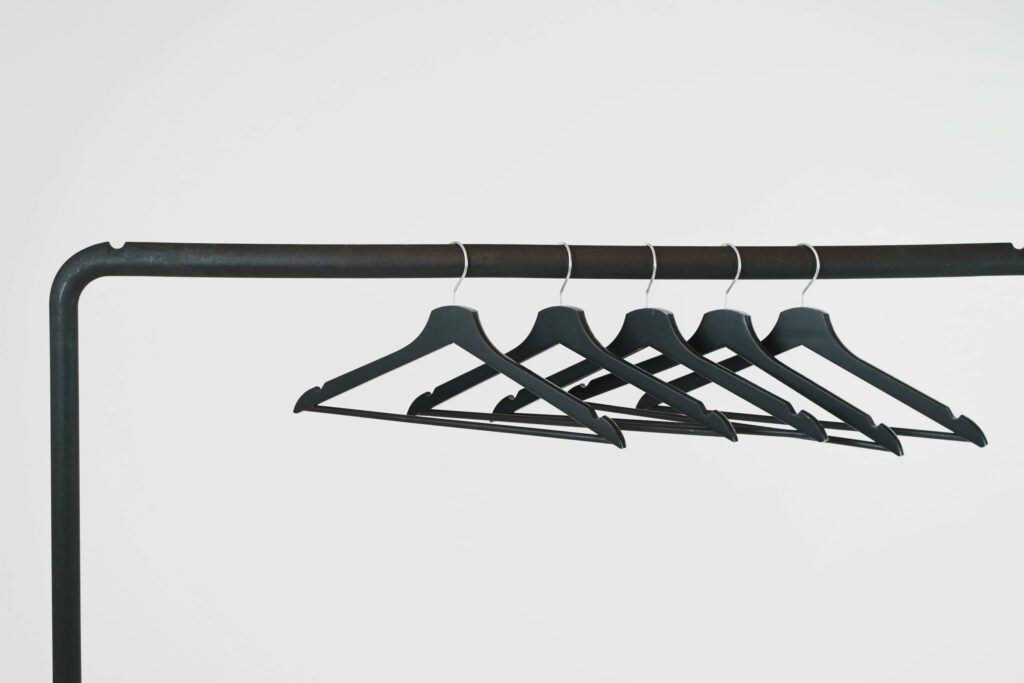

If you’ve ever felt overwhelmed by the clutter in your home, you are not alone. Many people start the journey to a simpler space only to find themselves discouraged by the task ahead. It can be very overwhelming at the start.
Quickly, it starts to look like the road to decluttering will be filled with endless challenges, missteps, discouragements, and frustrations. At that point, it just seems easier to give up.
But what if some of the obstacles we think we’ll face are built on misconceptions?
What if some of the assumptions we believe to be true are actually the beliefs holding us back? In some instances, that is exactly the case.
So let’s address (and dismantle) the 10 biggest decluttering lies that might be holding you back from getting started or making progress—so you can move forward with confidence and clarity.
1. Decluttering Has No End
One of the most daunting misconceptions is that decluttering is an endless task and there is no finish line anyway. This lie can make the process seem overwhelming and futile.
In reality, while our needs and circumstances change over time, requiring periodic reassessment, decluttering does not need to be a job without an end.
Decluttering, in its original phase, does have an end and it’s amazing. The quicker and harder you work, the sooner you can get there.
Then by establishing a mindful approach to what we own and reassessing what items bring value to our lives, we can maintain a clutter-free environment that grows and adapts with us.
2. Decluttering Has to Go Slow
Many believe that decluttering must be a slow, gradual process. While for some, taking it slow helps prevent overwhelm, this isn’t a one-size-fits-all approach.
Some may find that a more rapid decluttering session can lead to quick, motivating changes that inspire further action. One guy even famously decluttered his entire life in one weekend.
The work doesn’t have to be slow. The key is to understand your emotional and physical limits and choose a pace that suits your lifestyle and preferences.
3. Decluttering Decisions Should Be Easy
This lie can be particularly discouraging. But if you find making decluttering decisions difficult, you are not alone and you are still able to make progress.
Deciding what to keep and what to let go can be an emotional process. And almost everybody stands face-to-face with difficult decision.
Acknowledge that it’s okay to feel attached to your belongings and to struggle with these decisions. Over time, as you practice, this process will become easier.
4. You Need to Be a Minimalist to Declutter
Decluttering does not require you to live with the bare minimum.
I think minimalism is great. But there’s a difference between decluttering and minimalism. Embrace decluttering as a way to enhance your life by removing excess, not everything.
5. You Should Keep Everything You Use
Let me reframe your thinking a little bit about decluttering. Many people start with the question, “Do I use it?” And if the answer is yes, they’ll quickly decide to keep the item.
But the reality is, “Just because you use an item doesn’t mean you need to keep it.” Our homes are filled with countless things we think we need just because we occasionally use them.
But if there’s something else in the home that can accomplish the same task, we don’t need to keep extras.
6. You Should Never Regret Letting Something Go
Regret is a natural part of life and decluttering is no exception. It’s normal to occasionally regret a decision to part with an item.
But these regrets are few and far between and typically don’t outweigh the benefits and freedom that come from owning less.
Besides, it’s better to get rid of a thousand things and realize maybe you needed one of them later than it is to keep 999 things in your home that you never use.
7. The More You Throw Away, the Better
Decluttering isn’t just about throwing things away—it’s about making thoughtful decisions on what to keep and what to part with.
Sure, some things are just trash and need to be thrown away. But donating, selling, and recycling items are all part of a responsible decluttering process—and can often serve to be more motivating.
8. Decluttering is Expensive
Some think that decluttering involves buying fancy organizational tools and systems. In truth, decluttering should help reduce your need for additional items.
It doesn’t cost more to own less… it costs more to own more.
9. A Clean Space Equals a Decluttered Space
It’s easy to confuse cleanliness with decluttering. But a clean home isn’t necessarily decluttered if closets and drawers are bursting at the seams.
10. Decluttering Is Purely Physical
While decluttering your physical space is amazingly life-changing, don’t overlook the mental and emotional clutter. Simplifying your schedule, commitments, and goals can also have profound effects on your overall well-being.
By recognizing these decluttering lies before we even get started, we can approach the process with a clearer understanding, more realistic expectations, and better pathway going forward.
Decluttering is definitely a personal journey and each person is in charge of making their own decisions for their unique home and family. But regardless of how you choose to pursue it, owning less will help pave the way for a more meaningful and purpose-filled life.
Discover more from reviewer4you.com
Subscribe to get the latest posts to your email.





